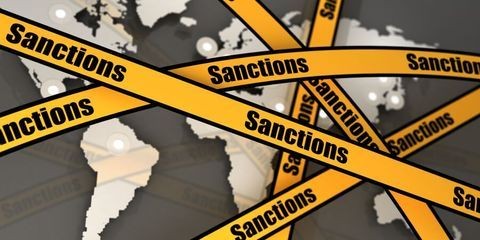False Claims Act Settlement Highlights DOJ’s Continued Pursuit of Large Contractors That Fail to Meet Subcontracting Requirements
Client Alert | 2 min read | 06.08.21
On June 3, 2021, the Department of Justice (DOJ) announced a $3,038,270 settlement with prime contractor CH2M Hill Plateau Remediation Company (CHPRC) to resolve allegations that it submitted false and fraudulent small business subcontract reports in violation of the False Claims Act (FCA). The whistleblower alleged CHPRC falsely certified that it awarded subcontracts to two companies located in Historically Underutilized Business Zones (HUBZones)--Indian Eyes, LLC, and Phoenix-ABC A Joint Venture (PABC)--when CHPRC knew that both entities did not have HUBZone status at the time of the awards. The settlement underscores that the Small Business Administration’s (SBA’s) programs continue to be a ripe area for FCA enforcement, and shows the substantial FCA risk large contractors face for teaming with small businesses that lack the size or status they claim.
The Department of Energy (DOE) awarded CHPRC a $4 billion contract in 2008 for the environmental cleanup of select portions of the Hanford Site. CHPRC’s contract required that it make efforts to award a certain percentage of subcontracts to small businesses located in HUBZones and to report to DOE regarding those efforts so DOE could monitor the extent of CHPRC’s compliance with its Small Business Subcontracting Plan. The complaint alleges that for years CHPRC submitted certified reports to DOE claiming that CHPRC’s awards to Indian Eyes and PABC were to qualified HUBZone concerns, when in fact Indian Eyes had been disqualified from the HUBZone program at the time of the awards, and PABC did not have a principal office in a HUBZone. It also alleges that CHPRC falsely claimed that PABC was an 8(a) qualified business to avoid the necessity of competing the award. CHPRC’s contract provided monetary incentives for CHPRC’s success in subcontracting to HUBZone businesses, as well as penalties for missing its subcontracting goals. The whistleblower alleged that CHPRC’s false certifications were, in part, an attempt to avoid the fee reductions associated with failing to meet its subcontracting goals.
CHPRC is the latest example of a large contractor becoming ensnared in an FCA action alleging small business fraud. The settlement underscores that large contractors may face liability when using purported small businesses as subcontractors to obtain credit under a small business subcontracting plan or to receive greater fees from the government under their prime contract if the subcontractor lacks the size or status claimed.
Contacts
Insights
Client Alert | 14 min read | 05.03.24
On April 24, 2024, President Biden signed into law the National Security Supplemental fiscal package, which includes significant new sanctions and export controls authorities. Although the U.S. foreign aid commitments for Ukraine, Israel, and Taiwan headline the new law, it also (1) expands the statute of limitations for U.S. sanctions violations; (2) includes new authorities for the President to coordinate sanctions efforts with the European Union and the United Kingdom; (3) expands sanctions and export controls on Iran (including some targeted at Chinese financial institutions); and (4) includes new sanctions authorities targeting terror groups.
Client Alert | 3 min read | 05.03.24
EEOC’s New “Enforcement Guidance on Harassment in the Workplace” Hits Hot-Button Issues
Client Alert | 11 min read | 05.03.24
FDA Moves Forward on Laboratory Developed Tests while Stakeholders and Congress Weigh Next Steps
Client Alert | 1 min read | 05.03.24






